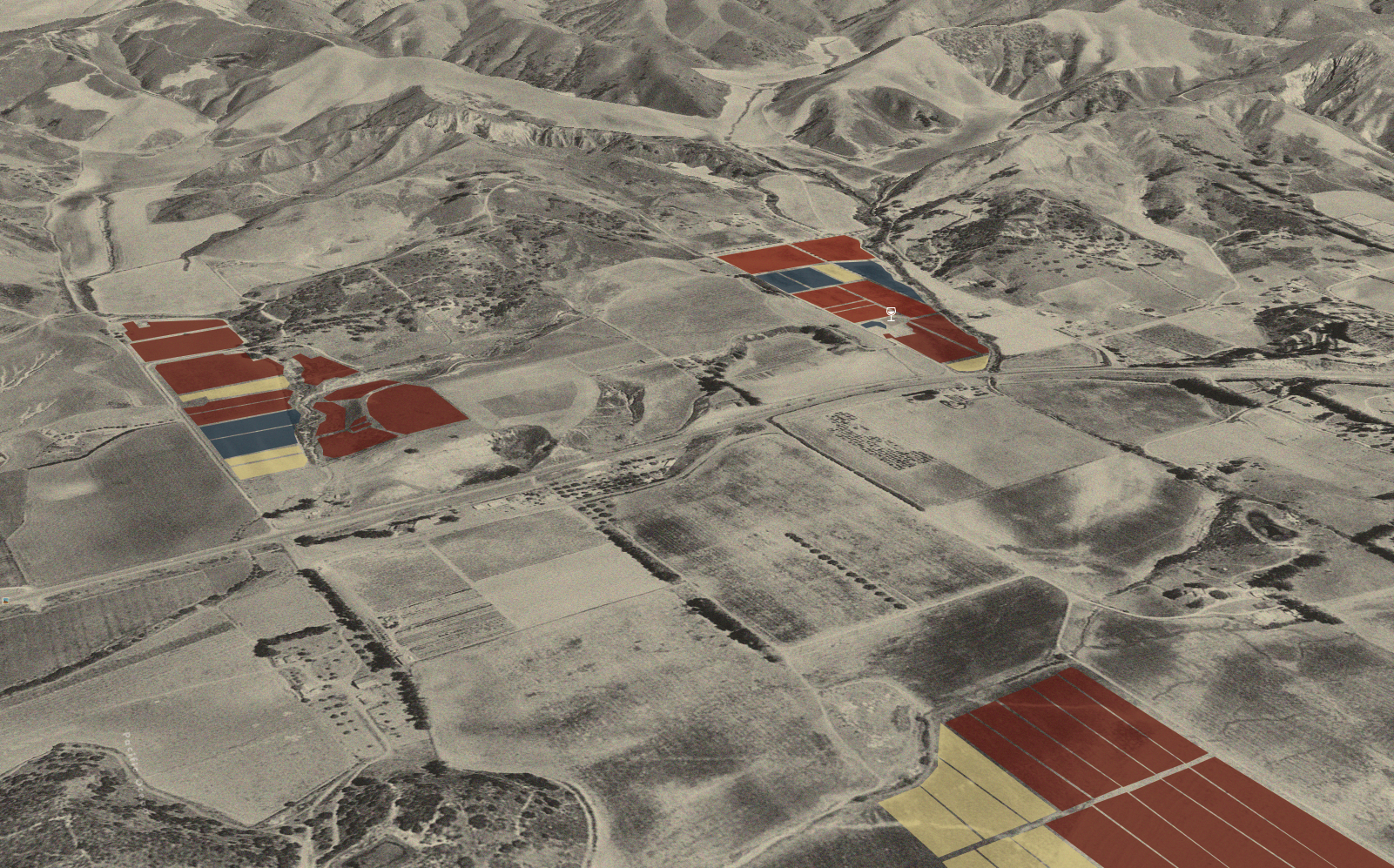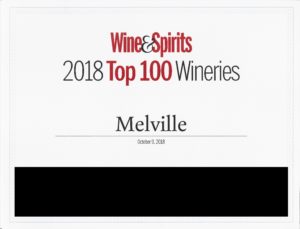
Varietal Key
Hover on a dot for more info
Pinot Noir
Syrah
Chardonnay
Tasting Room
Located in the heart of the Sta. Rita Hills appellation in Santa Barbara County, Melville currently has 120 acres under vine.
The soil is mostly Lompoc dune sand, interspersed with clay loam and shallow hard pans of Monterey shale. These vineyards are predominantly north/south-facing, planted at a spacing of 8’ x 3’ (1,812 vines per acre). Vines are all vertically shoot positioned with aggressive canopy management to ensure proper ripening and varietal development.
Our estate currently has 17 clones of Pinot Noir, 8 clones of Syrah, and 8 clones of Chardonnay - all on a variety of low-vigor rootstocks. All blocks are fermented in small lots and isolated through their entire period of elevage, which provides our team with an ongoing exhibition of how they can fine tune vineyard practices in order to achieve the most unmanipulated and site-specific wines possible.

 Ray Isle's "Bottle Service" column
This beautifully aromatic red, with its layers of dark blue fruit and fine tannins, shows quite clearly why the Sta. Rita Hills appellation has become known as one of the best Pinot Noir regions in California.
2017 Melville Estate Pinot Noir
Food & Wine (Nov 2020)
Ray Isle's "Bottle Service" column
This beautifully aromatic red, with its layers of dark blue fruit and fine tannins, shows quite clearly why the Sta. Rita Hills appellation has become known as one of the best Pinot Noir regions in California.
2017 Melville Estate Pinot Noir
Food & Wine (Nov 2020)
 Wine & Spirits Top 100
Wine & Spirits Top 100

